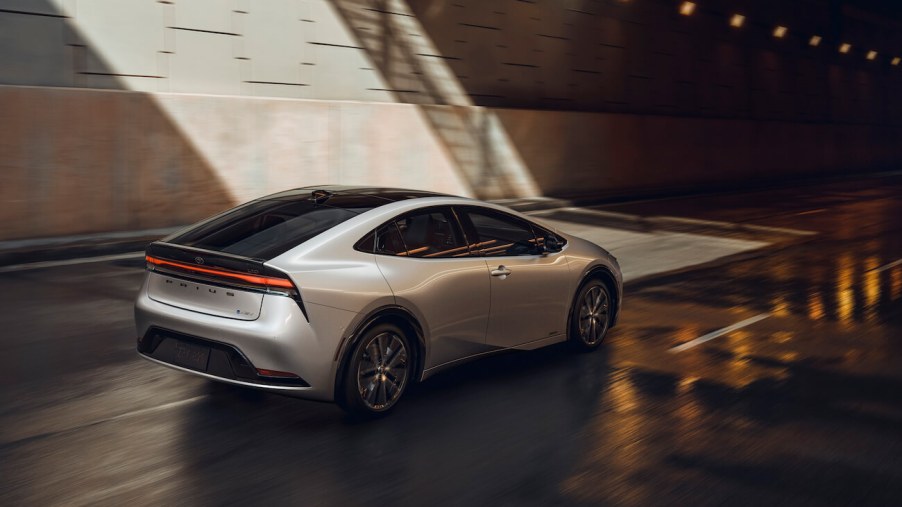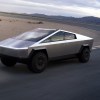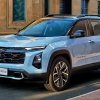
Toyota Is Proving Being First Isn’t Always Best
For a company that cemented itself in the automotive history books more than 20 years ago with its revolutionary Prius, a model that pioneered ultra-high fuel economy and reduced emissions to eco-conscious consumers, Toyota EVs have taken a lot of flack lately for not jumping on the bandwagon more quickly.
Instead, the brand continued to focus on expanding its line of traditional hybrids, plug-in hybrids like the newer Prius Prime, and even its radical Mirai hydrogen fuel cell vehicle. But as the electrical vehicle market begins to struggle, Toyota’s cautious approach is suddenly looking like a pretty smart move.
Critics were harsh on Toyota’s EV strategy
Toyota’s lone EV offering, the awkwardly named bZ4X, isn’t exactly setting any sales records. In its inaugural year of 2022, only 1,217 units were sold in the United States, followed by 6,486 units as of September 30, 2023, according to GoodCarBadCar statistics. Compare that to Tesla’s competing compact crossover, the Model Y, which sold 284,498 units through the third quarter of 2023.
Competitors heaped criticism on Toyota for skewing toward hybrids simply because that’s its comfort zone. The environmental organization Greenpeace ranked Toyota dead last among 10 major automakers in terms of their decarbonization efforts, emphasizing the outsized role of zero-emissions EVs in that endeavor.
The situation really escalated in January 2023, when Aiko Toyoda — grandson of company founder Kiichiro Toyoda — actually stepped down as Toyota’s CEO and was replaced by Koji Sato, though Toyoda is still involved on Toyota’s board of directors. Toyota didn’t publicly comment on the reason for Toyoda’s ouster, but there was rampant speculation in the media that the former CEO was booted because his EV agenda wasn’t progressive enough.
Electric vehicle sales have slowed
There’s no debating that EV sales have grown exponentially over the past couple of years. That said, when EVs represented just 3% of all U.S. vehicle purchases in 2021, it’s easy to boast about doubling sales, but that’s still only about 6% of all car sales in 2022. Continuing to scale sales after the early adopters have left the building is the tricky part.
Consider how many buyers remain that really want an EV but haven’t already rushed out to buy one, especially in light of the urgency to collect the Inflation Reduction Act’s $7,500 federal tax credit before it became more restrictive. Demand for EVs was extremely front-loaded, and now we’re starting to see the other side of that equation.
EVs are now spending twice as much time in dealer inventory as their ICE counterparts. Many EVs are expensive, even if they still qualify for the federal tax credit. At the same time, auto loan interest rates are rising sharply, increasing monthly payments for potential buyers. According to Statista, the average interest rate for a 60-month new car loan was 7.51% in September 2023 versus 5.16% exactly one year prior.
Why Toyota’s EV strategy might prove to be the best
Hybrids are popular for a reason. Their owners enjoy great fuel economy and reduced carbon footprint without any of the EV range anxiety or the need to have pricey chargers professionally installed, assuming that they even live somewhere that’s suitable for a charger, which rules out many apartment dwellers, renters, or street parkers.
Plug-in hybrids narrow the gap with EVs even more, with a typical range of 25 to 35 miles on battery power alone. That’s more than enough for running errands around town without sipping a single ounce of fossil fuel, but on longer highway trips, the gasoline engine kicks in, and you’ve got a regular car again. Not to mention that most plug-in hybrids can fully charge overnight from a standard 110-volt household outlet.
At the same time, Toyota hasn’t completely shunned the electrical vehicle space. It still has its bZ4X on the market and recently invested an additional $8 billion in its North Carolina-based battery plant that’s currently under construction, per Electrek.
In the same week as Toyota’s battery plant announcement, Ford opted to delay a $12 billion investment in boosting EV production and also cut one of three shifts at the factory that produces the previously red-hot (sometimes literally) F-150 Lightning electric truck. Similarly, General Motors announced delays in rolling out the all-electric versions of its Equinox SUV and Silverado/Sierra pickup trucks in order to “protect pricing and enhance profitability,” according to its earnings call.
In a nutshell, Toyota’s conservative and varied approach to achieving carbon neutrality has left it ready to pounce with a lot of dry powder at a time when other automakers are hemorrhaging money on every EV sold.



